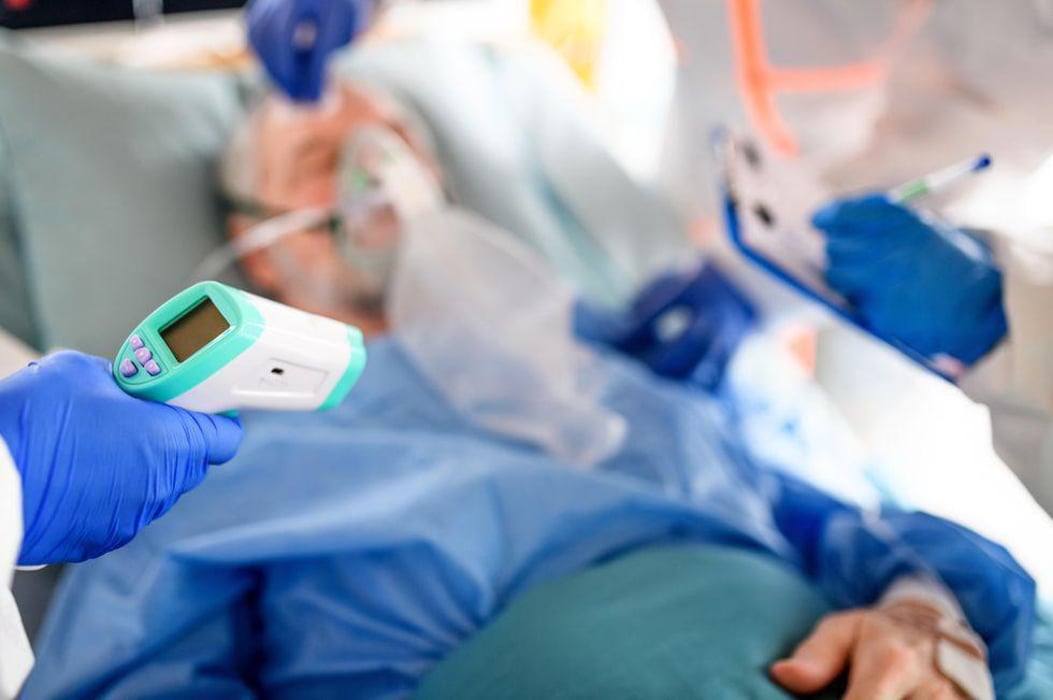Which Drugs Fight COVID Best? WHO Updates Treatment Guidelines

FRIDAY, Sept. 16, 2022 (HealthDay News) -- In updated guidance issued Thursday, the World Health Organization now recommends against using the antibody drugs sotrovimab and casirivimab-imdevimab for patients with COVID-19.
This recommendation replaces previous conditional recommendation for these antibody drugs. The change in guidance was based on emerging evidence that the medications -- which work by binding to the SARS-CoV-2 spike protein, preventing the virus from infecting cells -- are not likely to work on the Omicron variants that are spreading now.
In the United States, both antibody drugs are no longer recommended to treat COVID-19 because of emerging variants.
The panel also made a conditional recommendation for using the antiviral drug remdesivir in patients with severe COVID, while simultaneously recommending against its use in patients with critical COVID, which is even more serious than severe COVID.
This recommendation was prompted by results from five randomized trials of 7,643 patients, which found 13 fewer deaths per 1,000 patients in those with severe COVID taking remdesivir. Meanwhile, they have found 34 more deaths per 1,000 patients among those taking the medication who had critical COVID.
Patients with severe and critical COVID can receive a combined therapy using three drugs meant to treat arthritis, along with corticosteroids. The WHO advised combining the IL-6 receptor blockers tocilizumab or sarilumab and the JAK inhibitor baricitinib.
High-certainty trial evidence showed a survival benefit with baricitinib when combined with corticosteroids and IL-6 receptor blockers. However, their high price may worsen health inequities, the organization noted.
Past guidance has included a strong recommendation for using nirmatrelvir/ritonavir (Paxlovid and a conditional recommendation for molnupiravir (Lagevrio) for high-risk patients with non-severe covid-19.
WHO does not advise using ivermectin and hydroxychloroquine in patients with COVID-19, regardless of disease severity.
The guidance was published Sept. 15 in the BMJ.
More information
The U.S. Centers for Disease Control and Prevention has more on COVID-19 treatments and medications.
SOURCE: BMJ, news release, Sept. 15, 2022
Was this page helpful?
Was this page helpful?
Was this page helpful?
Was this page helpful?
Was this page helpful?
Was this page helpful?
Was this page helpful?
Was this page helpful?
Was this page helpful?
Was this page helpful?
Was this page helpful?
Was this page helpful?
Was this page helpful?
Was this page helpful?
Was this page helpful?
Was this page helpful?
Was this page helpful?
Was this page helpful?
Was this page helpful?
Was this page helpful?
Was this page helpful?
Was this page helpful?
Was this page helpful?
Was this page helpful?
Was this page helpful?
Was this page helpful?
Was this page helpful?
Was this page helpful?
Related Posts
¿El cartílago de la nariz podría ayudar a reparar las rodillas desgastadas?
JUEVES, 2 de septiembre de 2021 (HealthDay News) -- Cuando las personas tienen...
La leyenda de los concursos televisivos Bob Barker falleció a causa de la enfermedad de Alzheimer
JUEVES, 7 de septiembre de 2023 (HealthDay News) - El presentador de concursos...
Pills, Exercise, Dieting: What Works Best to Lose Weight?
THURSDAY, May 4, 2023 (HealthDay News) -- Hundreds of thousands of people are...
21 States Sue to Overturn CDC’s Public Transport Mask Mandate
WEDNESDAY, March 30, 2022 (HealthDay News) -- The U.S. government's mask mandate...
